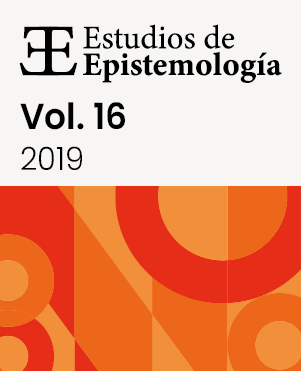Neural Bases Of Consciousness: Some problematic data about perception and free will

Published 2019-03-01
Keywords
- Conciousness,
- Libet
How to Cite

This work is licensed under a Creative Commons Attribution-NonCommercial-NoDerivatives 4.0 International License.
Abstract
The aim of this work is to present the results of Libet's experiments on the times it would take for the cerebral cortex to process neural sensory information and program voluntary motor activity. In order to do this, a brief review is made of some assumptions of neurophysiology and some of the tools used to study the nervous activity of the cerebral cortex. Libet’s experiments on perception show that the neural processing times of a stimulus would be around 300-500 milliseconds (almost half a second). This time is excessive and contradicts the reaction and response times of most of our daily activities. On the other hand, these results suggest that percepts are not a continuous flow but rather that it is a discrete phenomenon that is constructed and corrected moment by moment. Experiments on the voluntary act show that brain activity precedes the conscious decision to carry out the movement by about 200-500 milliseconds. A pressing problem with these data is that they would indicate that our consciousness lags behind reality by almost a whole second. Some of the explanation for this data are presented.
